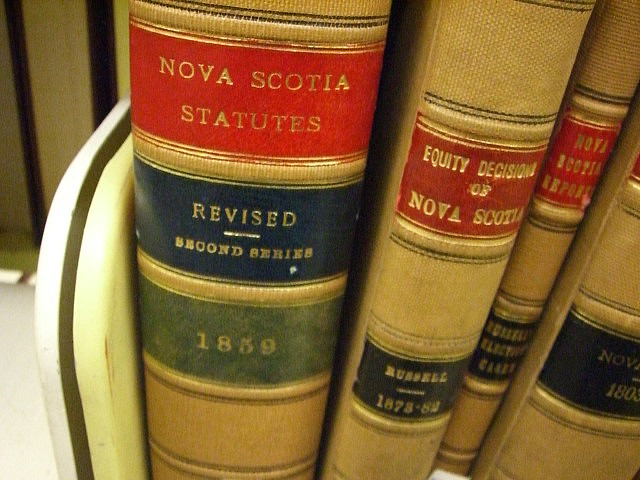Last week, the Nova Scotia Barristers’ Society heard unprecedented arguments about whether to recognize graduates from a new law school at Trinity Western University, a privately funded British Columbia Christian college.
The issue isn’t whether graduates will be competent to practice law. The Federation of Law Societies of Canada gave the program its preliminary seal of approval, finding “no public interest reason to exclude future graduates… from law society bar admission.” B.C.’s Advanced Education department reviewed the school’s curriculum and staffing plan and determined it “met the degree program quality assessment criteria.” Its graduates “could meet the national standards to practise law.”
The issue is whether the college should be allowed to require all students, faculty and staff to sign a “community covenant” that includes a clause requiring them to abstain from “sexual intimacy that violates the sacredness of marriage between a man and a woman.”
More than two dozen lawyers, law school profs and legal advocates showed up for the public airing of the issue. More than a hundred filed written submissions. Most oppose recognition. Allowing its graduates to practice here, summed up Dal Law Professor Elaine Craig, would be to condone “blatant and explicit discrimination” against the LGBTQ community, contrary to Canada’s Charter values.
The covenant may indeed violate the Charter, although the private school could counter-claim preventing it from establishing its own moral ground rules violates its freedom of religion. Those are arguments better hashed out in court.
But denying qualified graduates of an accredited law program the right to practice law in this province seems a kind of discrimination too.
Is the argument that Trinity Western lawyers can’t adequately represent LGBT clients because they once signed a covenant that may have simply reflected their own sexual values? Do we really believe lawyers should only represent those they agree with? If so, we’re in big trouble.
As Kevin Kindred, a Halifax lawyer and prominent gay rights activist — and one of the few to argue in favour of recognizing Trinity Western grads — explained to a reporter last week: “I don’t think we can presume they give false legal education or are unable to teach students the same ethical principles that I learned in law school.”
Case — should be — closed.
This article first appeared in Stephen Kimber’s Halifax Metro column.
Photo: umjanedoan/flickr




